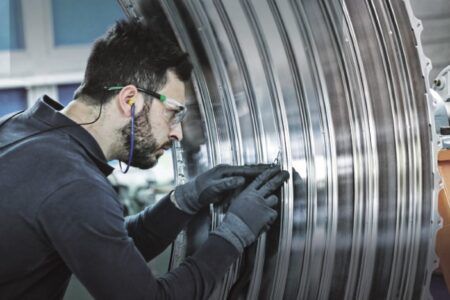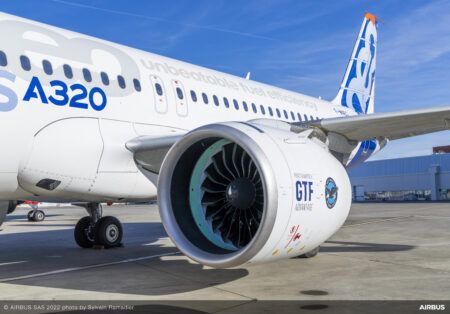Engineered Propulsion Systems (EPS) is making steady progress in its push toward FAA certification for its diesel piston aero engine. The clean sheet design is being developed to fit a wide range of global applications in general aviation.
The company completed ground and flight tests on two concept engines last spring. Engineers have incorporated a number of refinements in their first pre-production engine, which recently passed the 100-hour mark in ground tests.
During the first 30 hours of running, the new engine confirmed predictions that all moving parts would run smoothly and that internal ports were functioning correctly in the movements of fuel, oil and gasses.
“We spent considerable time tweaking the calibrations and adjustments to assure optimal performance,” said EPS president Michael Fuchs. “That’s the only way to reach peak efficiencies and maximum horsepower. We have turned up 360hp so far and expect to reach higher as the software is enhanced.”
The engine was subjected to a complete tear down at five hours and a partial tear down at 30 hours. “There were no major issues,” said Fuchs. “This is encouraging since we incorporated hundreds of new mechanical components and systems.”
At the end of December 2015, the first pre-production redundant electronic engine control units (EECUs) were put in service and are currently undergoing testing. “We are extremely proud that the EPS team and suppliers have reached this important milestone,” said EPS vice president Steven Weinzierl. “Clean sheet designs are essential for advancing powerplant technologies and our test runs have clearly demonstrated their merits.”
As the company adds hours to the test logs, run times will increase. All of the data collected from running the first pre-production engine will be incorporated in the second in the series of pre-production engines. Flight tests with one of the pre-production engines are scheduled to begin with a company-owned Cirrus light aircraft, at the hands of Dick Rutan, this spring.
February 5, 2016




